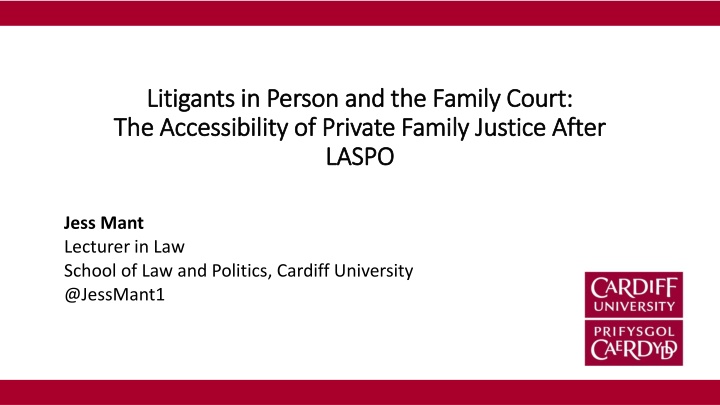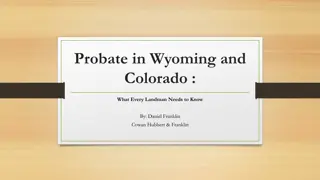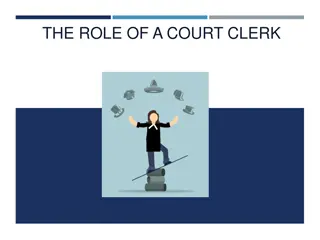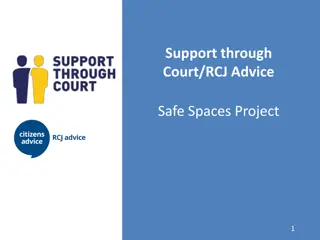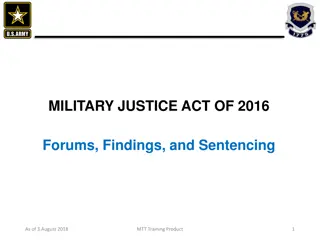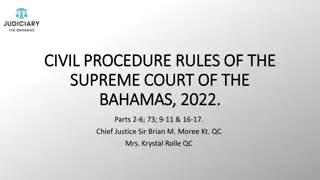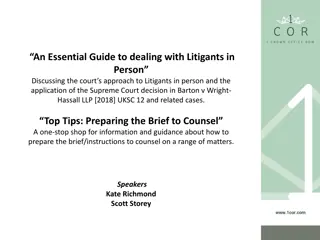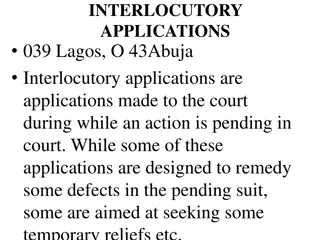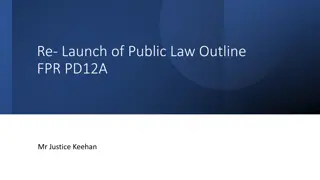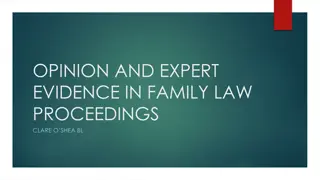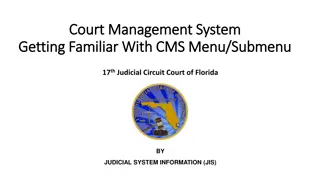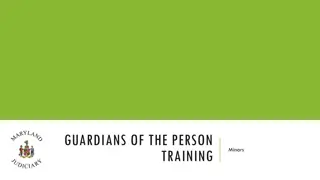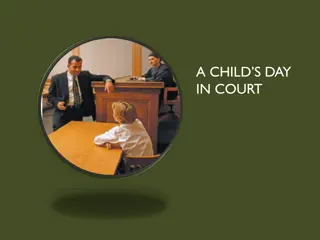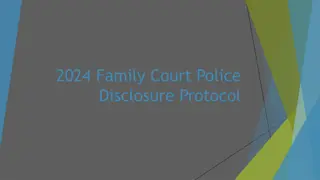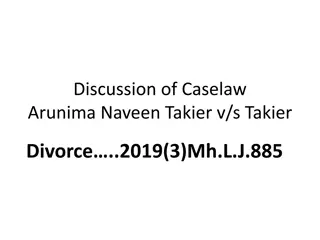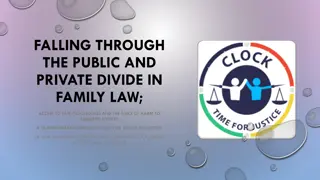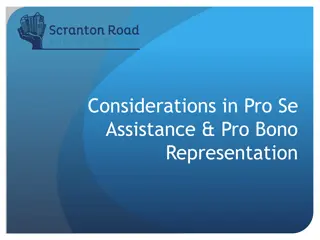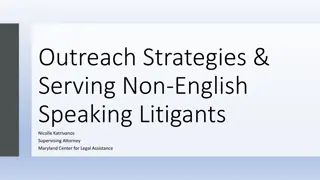Challenges of Litigants in Person in Family Court Proceedings
Self-representation in the family court post-LASPO has become the norm, with a majority of hearings involving at least one Litigant in Person (LIP). These individuals face various obstacles such as domestic abuse, learning difficulties, and limited access to resources. The research project sheds light on their experiences and the challenges they encounter, from accessing court assistance to advocacy in court settings.
Download Presentation

Please find below an Image/Link to download the presentation.
The content on the website is provided AS IS for your information and personal use only. It may not be sold, licensed, or shared on other websites without obtaining consent from the author.If you encounter any issues during the download, it is possible that the publisher has removed the file from their server.
You are allowed to download the files provided on this website for personal or commercial use, subject to the condition that they are used lawfully. All files are the property of their respective owners.
The content on the website is provided AS IS for your information and personal use only. It may not be sold, licensed, or shared on other websites without obtaining consent from the author.
E N D
Presentation Transcript
Litigants in Person and the Family Court: Litigants in Person and the Family Court: The Accessibility of Private Family Justice After The Accessibility of Private Family Justice After LASPO LASPO Jess Mant Lecturer in Law School of Law and Politics, Cardiff University @JessMant1
Family Law and LASPO Self-Representation is the new norm in Post-LASPO private family proceedings 81% of hearings involve at least one LIP (FCSQ Jan March 2018). LIPs who are no longer eligible for legal aid are now coming to court with a diverse range of backgrounds, circumstances and needs, including (but not limited to): Domestic abuse Learning difficulties Mental and physical health conditions Disabilities Isolation Poverty or lack of access to resources Precarious working/ living arrangements Caring responsibilities And many more
The Research Project 23 interviews with LIPs about their experiences of the private family court process, focusing on: B) How did they perceive these experiences? A) What problems did they experience?
Applying to Court There is some help, but you really have to push to find it, it isn t readily available like it doesn t come with the court papers. You have to go find it yourself, and the face-to-face advice you get is limited to the odd half hour or just 20 minutes. Ikraa
Applying to Court Issues: Finding relevant forms (or a PSU to assist) Compounded by: Geographic location Being time poor caring responsibilities, working arrangements Understanding court forms Extracting legally relevant information Learning difficulties/disabilities Emotional context of family breakdown
In Court: Advocacy It s like a circus act you ve got the judge there judging how well we re all performing, it s like the X factor the barrister does this all the time, he s been put in situations like this loads of times, he knows how to act, but your performance is judged to the same standard. Maxine
In Court: Advocacy Issues: Goal-oriented nature of speaking Compounded By: Learning difficulties/disabilities Time-constrained opportunities to speak Domestic abuse Educational and professional experiences Responding to the other side ( thinking on your feet )
In Court: Legal Conversations They would talk among themselves in legal-type language, and I was just sat there waiting for it to be translated, but you don t know what they said at first, or if they re saying all of it to you. Grace There is a mask over their conversations something is happening on a higher level that you aren t allowed to know and you can t control. Jon
In Court: Legal Conversations Issues: Waiting for things to be translated Unable to contribute first-hand to legal conversations Exclusion from significant parts of the hearing
Perceptions of the Court Process: Powerlessness I just felt nobody was listening, because they don t have enough time there and then, they just want to make a decision. I was going into court with all these people that were out to get me, and the judge was out to get me because the judge wasn t listening to any of the information I was giving him, so I just felt like I couldn t win anything. Karen My personal experience is that [the judge] came into the courtroom the very first time, and she had her mind made up already. Kate
Perceptions of the Court Process: A game of chance When I accidentally said something good, the judge would nod and agree and I d think, you ve saved yourself there and I would ve done by the scruff of my neck. It s like a game. In fact no, it s like a game of chess because no one normal understands how to play chess. Gary
Conclusions LIPs experience many problems engaging with legal processes, with the consequence of being practically and intellectually excluded from decision- making processes. The way in which these problems are experienced is strongly contingent on the circumstances/backgrounds of individual LIPs, and solutions cannot be generalised. Many of these problems can only be identified as such from the perspectives of LIPs themselves.
